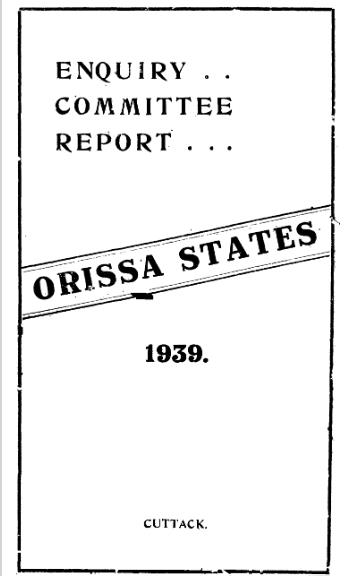In the context of 20th-century India, the state of education witnessed significant transformation, and Odisha was no exception. A significant milestone in this journey was the publication of the Enquiry Committee Report on Education in Orissa in 1939. Commissioned to assess the educational landscape in Odisha, the report emerged as a crucial document highlighting the challenges, opportunities, and recommendations for improving the education system in the state.
The inquiry was conducted against the backdrop of a rapidly changing socio-political climate, spurred by the Indian independence movement and the growing awareness of the importance of education for national progress. The committee, comprising prominent educationists and administrators, aimed to evaluate the effectiveness of existing educational policies and practices while addressing the specific needs of the Odia-speaking population.
One of the primary focuses of the report was the evaluation of the educational infrastructure in Odisha. The committee meticulously outlined the state of schools, colleges, and universities, noting the disparities between urban and rural areas. It underscored the crucial need for improved access to education, particularly in rural regions where educational facilities were often inadequate or nonexistent. The findings revealed an urgent need for government intervention to enhance educational access and ensure equitable opportunities for all children.
Furthermore, the Enquiry Committee Report highlighted the importance of curriculum development. It criticized the existing curriculum for being overly rigid and failing to address the local context and cultural heritage of Odisha. The committee emphasized the necessity of integrating Odia language and literature into the curriculum, fostering a sense of pride and identity among students. This call for cultural relevancy underscored the report’s broader goal of molding a generation that was not only educated but also conscious of its roots and heritage.
Teacher training and qualification were other focal points in the report. The committee recognized that the effectiveness of the education system hinges on the quality of its educators. It called for comprehensive teacher training programs aimed at equipping teachers with the necessary skills and pedagogical knowledge to engage students effectively. This emphasis on professional development highlighted a progressive approach to education, aiming to nurture competent and committed educators who could inspire future generations.
The report also brought attention to gender disparities in education. It pointed out the significant gap in educational opportunities between boys and girls, advocating for initiatives aimed at promoting girls’ education in Odisha. This forward-thinking perspective on gender equality in education was particularly important in a pre-independence India, where traditional norms often limited women’s access to education.
In addition to its recommendations, the Enquiry Committee Report served as a catalyst for discussions around educational reform in the state. It provided a comprehensive framework for policymakers, educators, and community leaders to engage in constructive dialogue about the future of education in Odisha. The insights and recommendations in the report laid the groundwork for subsequent educational policies and initiatives, influencing the trajectory of education in the region well into the post-independence era.
Books Info
| Books name | Enquiry Committee Report…Orissa States |
| Author | NA |
| No Of pages | 294 |
| Publisher | NA |
| Publication | 1939 |
| Printed At | Orissa Mission Press |
| Distributor | NA |

